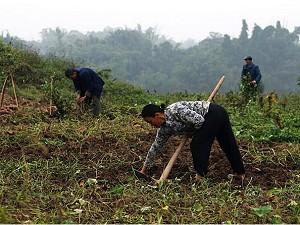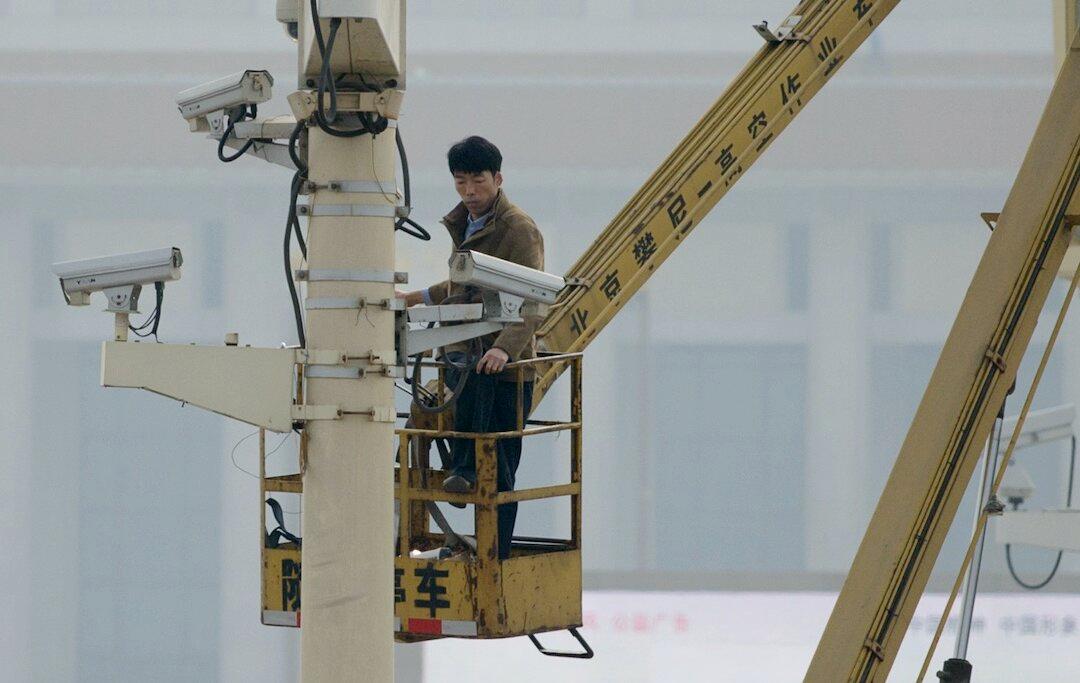70,000 farmers from the Sanmenxia Reservoir Area on the Yellow River in Shaanxi Province unanimously decided to make a nationwide announcement, proclaiming their ownership over the land taken from them.
The farmers posted an online notice on December 12, reclaiming their ownership of 150,000 mu (24,705 acres, 1 mu is about 0.1647 acre) of expropriated land.
The notice reads as follows:
“This notice represents the voice of 70,000 evicted farmers, from 76 villages scattered around Dali County, Huayin City, and Tongguan County in Shaanxi.“In the 1950s when the Sanmenxia Reservoir was under construction, we were evicted from our homes and 800,000 mu (131,760 acres) of our farmland was expropriated by local authorities. Through 30 years of bloody resistance by hundreds of thousands of evictees, the State Council returned 300,000 mu (49,410 acres) of land in 1980s to help us settle down.
“But in fact we only received 150,000 mu (24,705 acres) of land; the other 150,000 mu of land which had been officially assigned by the State Council as farmland for evictees was expropriated by officials at all levels in Weinan City, Huayin City, Dali County and Tongguan County for personal profits. The yearly rent of the grabbed land could bring the officials as much as 40 to 60 million yuan (US$5.43 to 8.15 million)income.”
According to Zhang Sanmin, a representative of the evacuees in Huayin, 10,627 evictees signed their names to the notice. Meanwhile, Chen Sizhong and Chi Xinji, representatives of the evictees in Huayin, were detained in early December, being charged with distributing leaflets and exercising influence through public opinion.
Mr. Chen, on behalf of the evictees, said that local officials expropriated farmers’ land under various names, and publicly carved up the land. On the other hand, the per capita arable land of the evictees was less than two mu. To make a living, the evictees were forced to pay officials a high rent for the land which was originally theirs.
Xu Lianzhong, on behalf of Dali County, said that the land distributed to farmers was saline-alkali soil, poor for cultivation, while fertile land was occupied by local officials. The land-leasing fee for one mu of farming land is over 600 yuan ($81.5). The evictees now have difficulty making ends meet. Parents can not afford to send their children to school, while the sick and elderly have no money for medication. The farmers have made appeals for their land deprivation for decades, but in vain.
Every year representatives of the evictees travel to Beijing to appeal to higher authorities, but are intercepted when they arrive and sent back to home. Because of asking for their lost land, nearly 50 farmers and representatives are being detained; two representatives were sentenced to one year in prison, while three representatives were so mistreated during their imprisonment―having been deprived of food and water―they died of illness after their release.
In the notice, the evictees declared their ownership over 150,000 mu of land which they are currently contracting. The land shall be used and owned by the farmers for generations. The farmers also claimed their rights to the other 150,000 mu of land which had been expropriated by local officials at all levels. They would organize all the farmers to equally divide the land among themselves, based on per capita farming area, to bring an end to unwarranted land seizures.
In the past decade the appropriation of more than one billion yuan ($136 million) for settlement of evictees had been embezzled and misappropriated by officials. The farmers would certainly investigate these criminal behaviors, said the notice.
Liu Caomin said that the land was passed down by their ancestors and was considered the farmers’ very life; without land, they could not survive. The authorities gave the evictees little compensation, while the local officials carved up the land or sold it for personal interests. The local authorities misappropriated the budget for the settlement of evictees to construct luxurious office buildings and residences for officials; land was the origin of the officials’ corrupt behavior, said Liu.
The evictees say they got inspiration from a similar action taken by farmers in Fujin City, Heilongjiang Province to reclaim land, which was unlawfully expropriated from them.
Some 40,000 landless farmers in Heilongjiang’s Fujin declared their ownership of 1.5 million mu (247,050 acres) of land expropriated by local authorities. The Shaanxi farmers will also take legal action to retrieve their stolen land.




